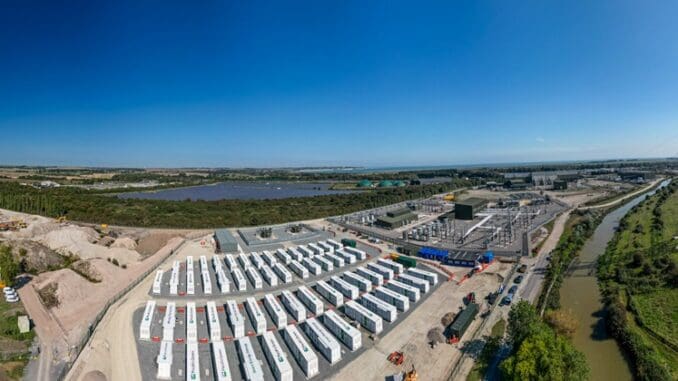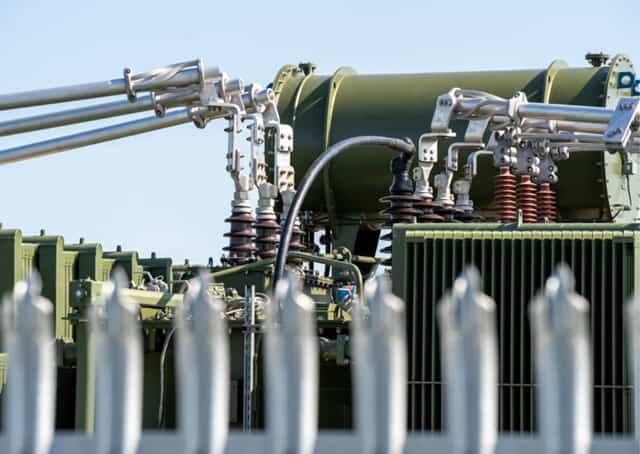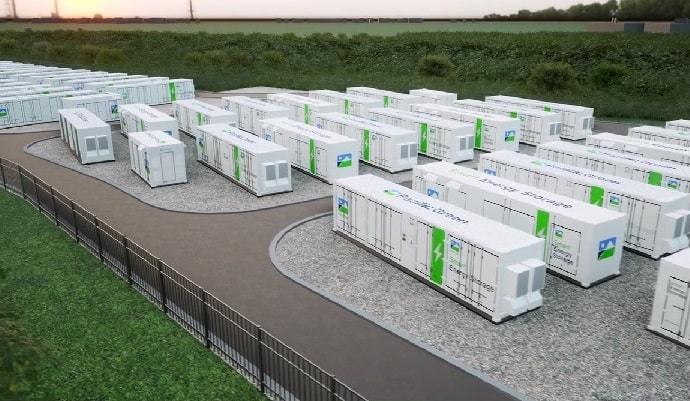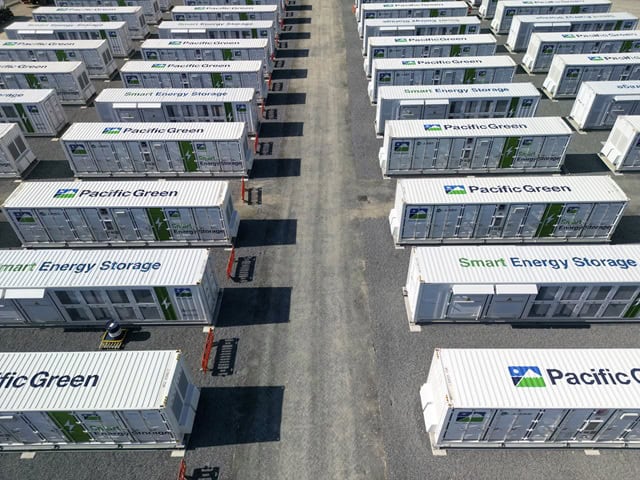
By Local Democracy Reporter Daniel Esson
Thanet District Council (TDC) has given retrospective planning permission for a 99.9-megawatt Battery Energy Storage System (BESS) at Richborough Energy Park, near Sandwich.
Consent was originally given for battery storage in 2020, with a second phase in 2021.
But developer Pacific Green built its project to different specifications and layouts than those originally approved – so a retrospective planning application was needed.
The application was discussed at a meeting of TDC’s planning committee on September 18, where officers recommended members to back the plans.

Howard Banks, on behalf of the energy park, told the planning committee: “The site’s evolution from coal power to storing solar and wind energy for when the country needs it is a fantastic example of the energy transition in action.
“Richborough Energy Park stores carbon-free electricity which would otherwise be wasted.
“Additionally, it is able to deploy this energy extremely quickly thus providing an important grid stability service.
“The facility is making a material contribution to energy security and decarbonisation towards the ultimate destination of net zero.”
He added that due to technological advancements, the original 56 battery units were no longer needed, and there are now instead 38 on-site.
“Richborough Energy Park benefits from newer technology and better processes than some of the UK’s earlier battery storage sites. Site safety will always be our number one priority,” he said.
However, some councillors were not as glowing in their reviews of the scheme.
“Traditional energy consumption created peaks and troughs in our energy supply and we didn’t need to destroy our environment to store it,” said Cllr John Davis (Con).
The site of the units sit close to the Sandwich and Hacklinge Marshes Site of Special Scientific Interest (SSSI).
The 38 batteries are stored within single-storey shipping containers on the site, with 19 power converters located between them – also in shipping containers.
“You’re being asked to give retrospective approval to a proposal with potential to threaten the lives and health of residents as well as the environment next to an SSSI,” said Cllr Tricia Austin (Green).
“This project depends on every element working perfectly 100 percent of the time, but we know from tragedies like Grenfell that doesn’t happen in the real world.
“We cannot and must not take a chance on our being lucky every single day, I urge you to reject this proposal.”

National Grid started developing Richborough Energy Park after the coal power station’s demolition.
It now hosts the converter station for the Nemo Link – the huge new cable connecting the UK to Belgium.
But BESS have been controversial around the country – as they store energy in lithium ion batteries.
Fires in such batteries do not require oxygen to burn, and cannot be extinguished with water, they can only be put out with some forms of chemical gas.
In 2020, a fire at a 20MW lithium battery storage plant in Liverpool took 59 hours to extinguish.
Nearer to home, in February, Swale Borough Council’s planning committee voted down the battery safety management plan for the 150MW storage facility at Cleve Hill solar farm, near Graveney, one of the UK’s largest.
Swale councillors and residents cited safety concerns about fire management at the site.
But the developers appealed against Swale council’s refusal and, in July, the government planning inspectorate ruled the council had voted wrongly and awarded damages which will cost the authority thousands.
At the TDC planning meeting, an officer stressed to members: “This type of facility does support the transition to low carbon energy from electricity sourced from renewable sources.”
He also said that to combat possible fires, the site stores 74,460 litres of water – giving them the capacity to spray at a rate of 1,900 litres per minute for two hours.
If one of the batteries catches fire, as they cannot be extinguished by water, the water is instead used to cool down the neighbouring battery units to stop them from catching alight.
They also store Novec 1230 halon gas which can extinguish the fires, but as this gas is being phased out of usage, the developers say they will find alternative substances.
The planning officer continued: “It is not the responsibility of this council to ensure that the site is operated safely, that is the requirement of the actual operator.”
He acknowledged the “real concerns” of councillors and residents, but added: “It is not the purpose of the planning system to debate the safety of this technology, it’s about ensuring whether or not the impact of the development has been dealt with.
“We have to rely on the technical expertise of the people who are going to be fighting an incident there, and they are happy with what’s been put forward.”

Kent Fire & Rescue Service has told the council it has no issue with the plans from a safety perspective.
Some councillors wanted to defer approval to visit the site, with Cllr Mike Garner (Green) saying: “This isn’t like building a few houses, an estate or extension, this is quite a large, potentially risky build of infrastructure.”
“This might not be the only battery plant that we are going to have to approve, and I sit here and want to be absolutely certain that everything is in place to protect the environment and the people that may be living around that site,” added Cllr Rebecca Wing (Green).
However, others slated that suggestion, with Cllr Kristian Bright arguing: “I’m not an expert on battery parks, I think a site visit would show me a bunch of shipping containers.
“We as a council declared a climate emergency, developments like this are absolutely necessary if we’re going to combat climate change and move to net zero.”
The planning committee voted to give retrospective planning permission, with seven votes in favour, two against and no abstentions.
A release from Pacific Green’s website shows that in the summer of 2023, they sold the 99MW storage site to green investment management firm Sosteneo Fund 1 HoldCo S.à.r.l – and the facility connected to the grid in December last year.
Richborough formerly hosted a coal based power station, which opened in 1962 and was decommissioned in 1996, with its iconic three cooling towers and chimney stack demolished in March 2012.

